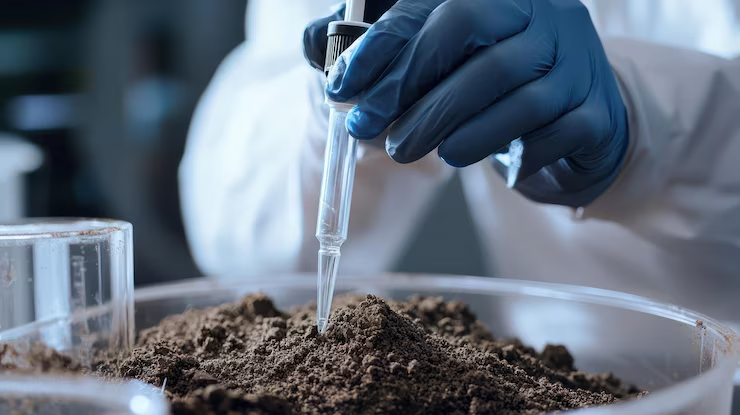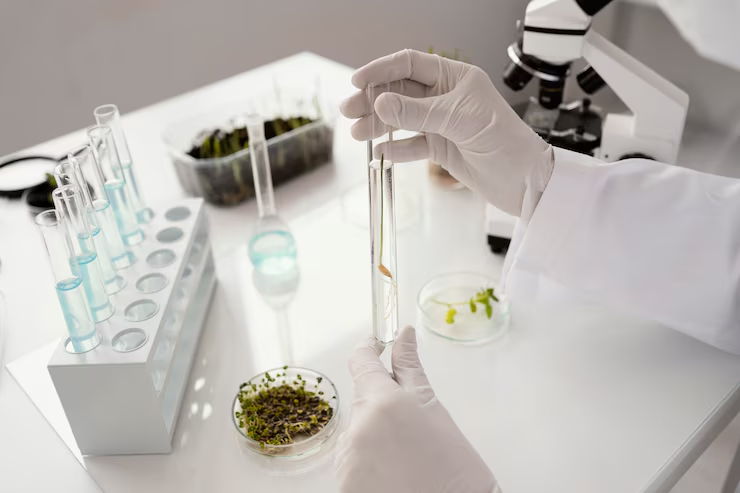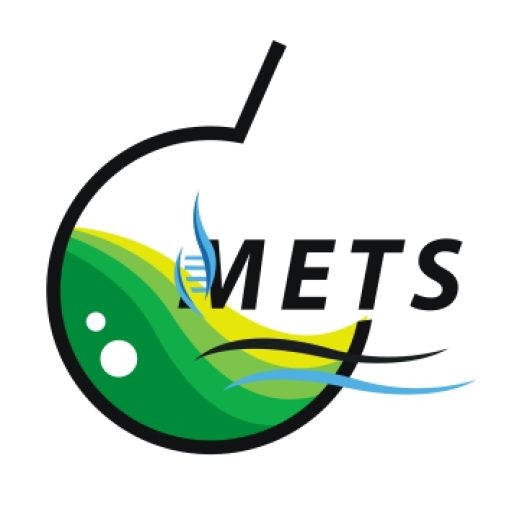
Soil Testing – METS Laboratories
At METS Laboratories, we recognize soil as the fundamental resource for agriculture, construction, environmental management, and land development. Accurate soil testing is essential to understand soil properties, fertility, and contamination levels. Our state-of-the-art Soil Testing services provide reliable, scientifically validated data to support informed decision-making. Utilizing advanced analytical instruments and standardized methodologies, METS Laboratories delivers comprehensive soil analysis to meet the needs of farmers, agronomists, environmentalists, industrial clients, and regulatory bodies.
Why Soil Testing Is Important?
Soil testing is a critical process that determines the physical, chemical, and biological characteristics of soil. Its importance can be summarized as follows:
• Optimizing Crop Production: Soil testing helps determine nutrient deficiencies or toxicities, enabling farmers to apply the right amount of fertilizers and amendments to maximize crop yield and quality.
• Sustainable Agriculture: By providing precise soil nutrient data, it prevents over-fertilization and reduces environmental pollution from nutrient runoff.
• Land Use Planning: Soil tests inform decisions for construction, landscaping, and environmental restoration by assessing soil bearing capacity, contamination, and drainage characteristics.
• Contamination Assessment: Testing identifies harmful contaminants such as heavy metals, pesticides, and hydrocarbons, helping to mitigate environmental risks and protect public health.
• Regulatory Compliance: Many industries must comply with environmental regulations requiring soil monitoring and reporting, making soil testing vital for legal and safety reasons.
In essence, soil testing is the foundation for responsible soil management, ensuring healthy ecosystems and productive land use.
What We Test?
• pH and Electrical Conductivity (EC): Measures soil acidity/alkalinity and salinity.
• Macro Nutrients: Nitrogen (N), Phosphorus (P), Potassium (K).
• Secondary Nutrients: Calcium (Ca), Magnesium (Mg), Sulfur (S).
• Micronutrients: Iron (Fe), Manganese (Mn), Zinc (Zn), Copper (Cu), Boron (B), Molybdenum (Mo).
• Organic Carbon Content: Indicates soil organic matter.
• Cation Exchange Capacity (CEC): Measures soil’s ability to hold nutrients.
• Heavy Metals: Lead (Pb), Cadmium (Cd), Arsenic (As), Chromium (Cr), Mercury (Hg), Nickel (Ni).
• Texture Analysis: Percentage of sand, silt, and clay.
• Moisture Content: Water content of soil samples.
• Bulk Density: Soil compaction level.
• Particle Size Distribution: Determines soil classification.
• Microbial Biomass and Activity: Indicators of soil biological health.
• Soil Respiration Tests: Assess microbial activity.
• Spectroscopic Methods: Atomic Absorption Spectrometry (AAS), Inductively Coupled Plasma Optical Emission Spectrometry (ICP-OES).
• Chromatography: For pesticide residue analysis.
• Standardized Soil Extraction Procedures: Olsen method for phosphorus, Kjeldahl method for nitrogen.
• Physical Testing: Hydrometer method for texture, gravimetric methods for moisture.
Agricultural fields, horticultural lands, industrial sites, construction soils, contaminated lands, landfill sites.
What METS Laboratories Offers?
At METS Laboratories, we offer:
• Comprehensive Soil Testing Packages: Tailored to agriculture, construction, environment, and industrial needs.
• Fast Turnaround Time: Results delivered promptly with detailed interpretative reports.
• Accredited Testing: Compliance with ISO/IEC 17025: 2017 standards ensuring accuracy and reliability.
• Expert Consultation: Professional advice to interpret test results and recommend soil management strategies.
• Advanced Analytical Techniques: Use of cutting-edge instruments for trace element detection and contamination analysis.
• Field Sampling Assistance: Guidance on correct sampling protocols to ensure representative results.
• Custom Testing Solutions: Specific tests for specialized requirements, including organic certification, pollution monitoring, and reclamation projects.
What We Ensure?
- Accuracy & Precision: Stringent quality control and proficiency testing ensure trustworthy results.
- Confidentiality: Client data is securely handled with full confidentiality.
- Regulatory Compliance: Testing procedures meet national and international standards.
- Comprehensive Reporting: Clear, actionable reports with data interpretation to support decision-making.
- Customer Support: Dedicated customer service for queries, technical assistance, and follow-up.
- Sustainability Focus: Encouraging sustainable soil management practices through scientific guidance.
Who It’s For?
- Farmers and Agronomists: To optimize fertilizer use and improve crop yields.
- Environmental Consultants: For site assessments and contamination monitoring.
- Construction and Engineering Firms: To assess soil suitability and safety.
- Government and Regulatory Bodies: For environmental compliance and land management.
- Industrial Clients: To monitor soil contamination from manufacturing or waste disposal.
- Researchers and Academicians: Supporting soil science and environmental studies.
- Landowners and Developers: For land evaluation prior to development or restoration.
Protect Consumers. Satisfy Authorities. Boost Market Confidence.
Soil testing plays a pivotal role in protecting consumers by ensuring the safety and quality of agricultural products and construction materials. Contaminated soils can lead to the uptake of harmful substances in food crops or cause structural failures in building projects. By rigorously testing soils, METS Laboratories helps clients meet regulatory standards, avoid legal liabilities, and maintain public trust.
Regulators rely on accurate soil data to enforce environmental laws and safeguard public health. METS Laboratories’ credible testing services provide the transparency and accountability authorities require.
For businesses, verified soil quality enhances market confidence. Demonstrating compliance and environmental responsibility attracts investment, improves brand reputation, and supports sustainable growth.
Frequently Asked Questions
How often should I test my soil?
For agricultural lands, testing every 2-3 years is recommended. Construction and industrial sites may require more frequent testing depending on usage and risk factors.
How do I collect a soil sample properly?
Use clean tools, collect samples from multiple locations within the area, mix to get a representative sample, and avoid contamination.
How long does it take to get results?
Typically, 5-7 business days. Expedited services may be available.
Can METS Laboratories help interpret test results?
Yes, our experts provide detailed explanations and recommendations based on results.
Are your methods internationally recognized?
Yes, we follow ISO/IEC 17025: 2017 accredited protocols and international standards.
What if my soil is contaminated?
We can assist with identifying contaminants and advise on remediation options.



